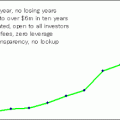Thyssenkrupp has written down the value of its steel business by €2.1bn, pushing Germany’s largest steelmaker into the red as it warns of low demand and prices amid the gloomy economic climate.
The Essen-based company, which includes a submarine division and a bearings business, on Wednesday posted a net loss of €2bn for 2023, blaming high prices for gas and other raw materials for the hit to its energy-intensive steel business.
Spot prices for steel had fallen this year, Thyssenkrupp said, lowering sales by its steel division 6 per cent to €12.4bn despite shipments remaining flat compared with the previous year.
The company’s share price jumped more than 6 per cent on Wednesday morning, as investors hoped that the lower value of its steel business would boost chances for it to be spun off. Thyssenkrupp also confirmed that it was still “talking” to Czech energy group EPH, owned by Daniel K?etínský, regarding a “potential joint venture” involving the steel unit.
Thyssenkrupp is trying to decarbonise and transition to “green steel” made using hydrogen and electricity rather than gas — an effort that the company says will eventually cut carbon emissions by 3.5mn tonnes a year.
While the company confirmed on Wednesday that €2bn of support that German authorities have pledged towards its transition was secured, questions remained over decarbonisation projects by other industrial players after a German court last week struck down a €60bn off-budget climate fund.
Once a leading German conglomerate, Thyssenkrupp has been rapidly shrinking over the years amid underperformance of several of its divisions and a disastrous investment in Brazil in 2005, which cost the company €8bn. The company in 2019 sold its lucrative lifts and escalators division to private equity groups for €17bn, and has since closed or sold several smaller units, including mining and carbon components divisions.
Chief executive Miguel López joined the company in the summer, after his predecessor Martina Merz was pushed out by the board in April, partially due to slow progress in the company’s efforts to spin out its steel business.
A high-profile attempt to merge Thyssenkrupp’s steel business with Tata Steel was blocked by Brussels in 2019, and a subsequent bid for the unit by British tycoon Sanjeev Gupta’s Liberty Steel fell apart in February 2021 after financing problems.



